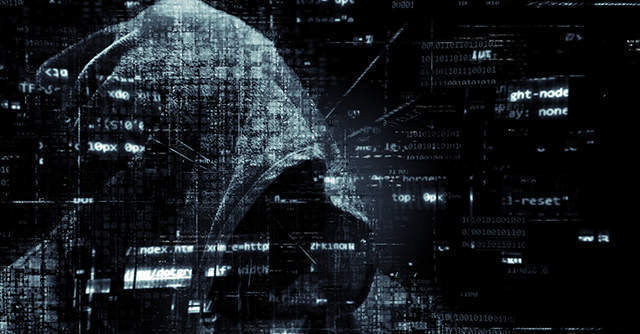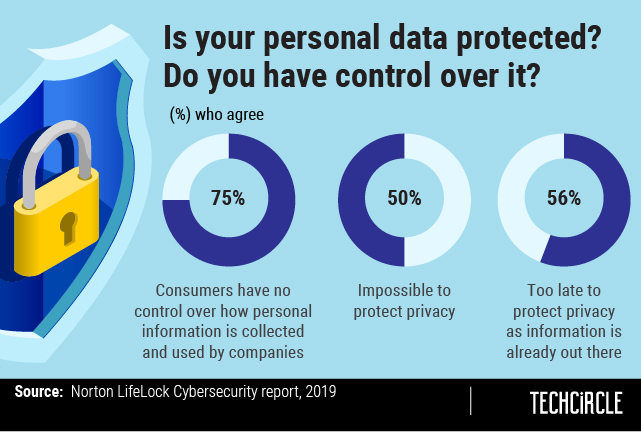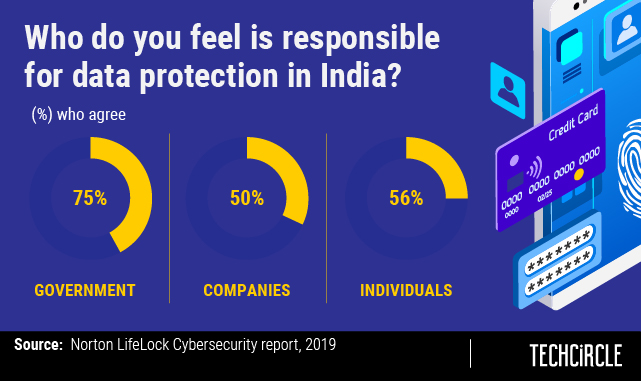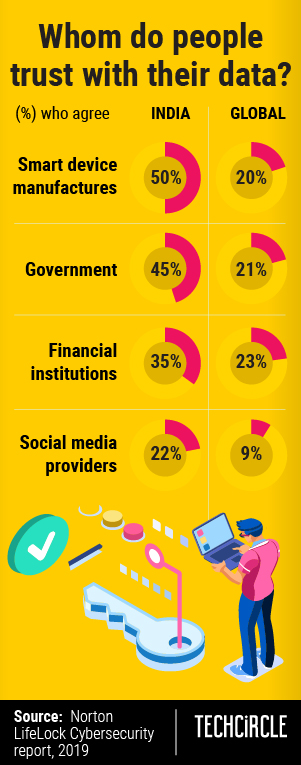
Over 80% of young adults are cybercrime victims; four of 10 Indians face identity theft: NortonLifeLock


At a time when most employees world over have been asked to work from home amid lowered security measures and college students spend more time online as education institutions remain closed, hackers have been working overtime to make the most of the situation.
At least four out of every 10 Indians are exposed to identity theft at least once in their lives, with 70% worried that their identity would be stolen at some point, a report by Mountain View, California-based security firm NortonLifeLock, said.
NortonLifeLock, previously known as Symantec, provides cybersecurity solutions and software for consumers and enterprises. Its product line includes security solutions for home-based devices, small businesses, cloud backup solutions and mobile security. In November, San Jose, California based Broadcom, which manufactures semiconductor and infrastructure software products, bought NortonLifeLock for $10.7 billion in cash. The company had close to 12,000 employees and had hit revenue figures of $4.8 billion, as of 2019.

The report, called Cyber Safety Insights 2019, said that 41% of people between ages 18 and 39 were victims of identity theft, while the number was almost half at 22% for people over 40, it said. In India, 10% of those surveyed experienced identity theft in the past year alone, it added.
As many as 66% of those surveyed said they experienced at least one type of cybercrime over the past year, according to the report. While 81% of individuals between the ages of 18 and 39 faced cybercrime at least once in their lives, the number was lower at 73% for individuals over 40, it said.


Inputs from 10,063 adults from 10 countries were taken for the study. While close to 1,000 people were surveyed in Australia, France, Germany, Italy, Japan, Netherlands, New Zealand, UK and the US, a total of 1,017 were surveyed in India.
“It is not just malware or antivirus on devices that people are worried about -- the narrative is changing towards privacy or identity. The awareness levels have also gone up,” Ritesh Chopra, country director of NortonLifeLock, said in an interview with TechCircle.
The observations in the report are worrying, as more people are spending time online now, with only essential services being allowed to function.

“Phishing scams related to Covid-19 have gone up tremendously and are happening across applications, devices and browsers. Messages forwarded to you on social media platforms could contain hidden malicious code -- they may or may not trigger the attack now, but could also do so in the future,” Chopra said.
Read: Email attacks rise 667% since Feb-end; phishing set to increase: security firm
Privacy protection
Indians seem the most proactive when it comes to privacy protection, with 86% saying in the study that they implemented privacy measures themselves, compared to their global counterparts at 65%.

Almost three-fourths of Indian respondents said they did not download a certain app or use a service as the platforms hinted at data misuse, the report showed.
A little over 40% of Indians worry that their sensitive personal information could be sold to third parties, while 40% also felt that their personal information would be compromised in the instance of a data breach, the report said.
In fact, a whopping 94% of Indians said they actively hide their online footprint to protect their data, the report showed.

“Hiding their online footprint is now something that is becoming ingrained into the normal Indian’s mind and we are actually ahead of the global average of 84%. We are actively trying to make sure less personal information is given out, which is a positive trend,” Chopra said.
However, as per the report, Indians were seemingly more complacent to the cybersecurity issues than their global counterparts. Only 14% of respondents said that they read privacy policies in detail before downloading an app.
Read: Hackers ride the Covid-19 wave as more people spend time online: Check Point
Selling privacy for more offers?

Additionally, the study showed that Indians, at 52%, were most likely among all ten nations to sell their online search history for relevant advertisements, while the global number was only at 25%.
“We get access to so many apps and some of them become viral. As a young digital country, we adopt them in millions. Whether it is a caller ID database or a social networking app, we don’t know how responsible those organisations are with the data captured,” Chopra said.
“They could be reading SMSes for all you know because you gave them the permission. They could also probably know which bank you carry out transactions with or how much salary you get,” he added.
An example of an app, which requires multiple permissions to function optimally, is a well-known caller identification application that requests access to call logs, camera, contacts, location, microphone, SMS, storage and the keypad.
At 66%, Indians were also more likely to allow technology companies to listen to their voice commands over their global counterparts at 33%, the report said. At 57%, they were also more likely than their global counterparts at 35%, to allow social media sites use their photos and videos to train artificial intelligence-powered products, it added.
The trust factor
Half of the Indians surveyed expect smart device makers to keep their data safe, compared to the global average of 20%, as per the report.
Almost one out of two Indians trust the government most to keep their data safe and social media providers least, at 22%. In stark contrast, only 21% of respondents across the other countries placed their trust in the government, while 9% expected social media sites to keep their data safe.
According to 71% of Indians, the government would keep their data safe, while 69% believed that companies would take measures to avoid misuse of their data, the report showed.

Who should use facial recognition?
Indians were also supportive of facial recognition technology being used in multiple segments, such as law enforcement (76%), schools (74%) and retailers (69%), as per the study. More than 70% of them said the technology could improve products and services.
However, one out of every two respondents (58%) believe that it could be misused or abused in the coming year, the report said, adding that their biggest concern was that hackers could access the data and steal their identity.
Therefore, it was no surprise when the study reported that 83% of Indians want businesses and the government to tell them if/where and when they use facial recognition.
When it came to taking responsibility for a breach, only 42% and 32% of Indians felt that the government and companies, respectively, should be accountable, according to the report. In fact, 46% said they would hold themselves responsible for being victims of cyberattacks, it added.

How do you protect yourself?
The methods by which cyberattacks can be thwarted are fairly simple.
The security company suggests using strong passwords, keeping all software updated with the latest versions, thinking and analysing any link before clicking on it and using a full-service internet security suite.
Additionally, take time to understand what permissions you grant to third-party apps and read their privacy policy.
“Read new policies of new apps, understand how the data is used and what permissions are given with regards to location and camera access. Also remember to log out of sessions. Setting up control access and sharing screens are to be given importance,” Chopra said.
